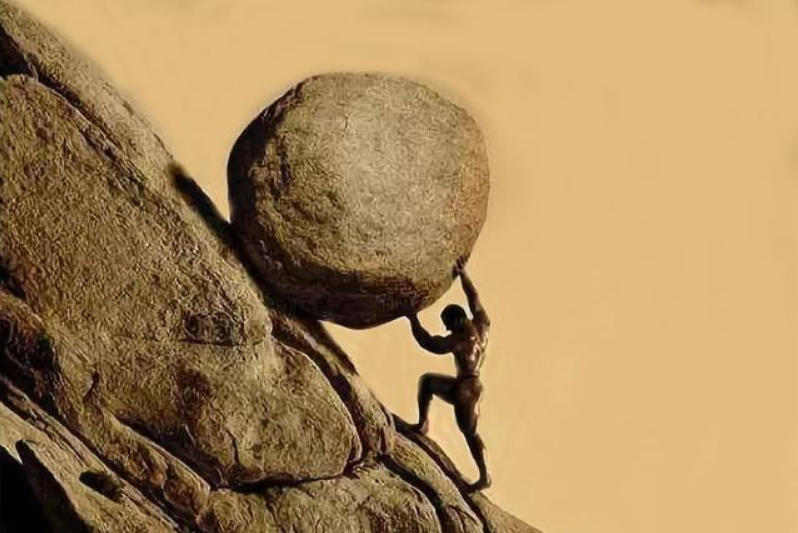
Dialogue between Plato and Aristotle on Athenian Democracy
哲学essay代写 Both Plato and Aristotle offer views on the importance of human existence and fair leadership in a city-state. However, their
Introduction 哲学essay代写
Two cities in ancient times dominated Greece. The cities included Athens and Sparta, and two cities had conflicts as they sought dominance over Greece. The most remarkable period of the conflicts between the two cities is the Peloponnesian war period that was fought in 431 to 405 B.C.E. Before the start of the war, Athens was the most powerful city in Greece (Peonidis 285). The war led to the transition of power from Athens to Sparta upon emerging victorious in the war. Plato's argument critiques the democracy of the Athens City State. Most philosophers term Plato to be an enemy of democracy following his contradictory views that go against democracy.
Plato presented his thoughts in dialogue rather than setting his thoughts systematically like the other philosophers. The main reason that Plato is considered an enemy of democracy is his family's participation in raiding Athens city due to his hatred for the kind of "democracy" practiced in the city before the Peloponnesian period. However, Plato's view on democracy is thought to be hideous due to his writing strategy in the form of a conversation (Peonidis 289). Thus, in a scenario where two or more people speak, it is challenging to establish whose thoughts are Plato's.

Aristotle was a student of Plato, and Plato's thoughts also influence his work.
The arguments presented by Aristotle are somehow hideous, which may be attributed to the disarrangement in the order in which Aristotle gave them. However, his critics on democracy and monarchy are pretty clear, deviating from Plato's thoughts in a few aspects. Aristotle's life was encompassed around the countries' political leadership and States like Athens and Asia. Thus, his superior political knowledge is attributed to his livelihood. This paper presents the arguments presented by Plato and Aristotle regarding democracy in ancient Greek.
Discussion 哲学essay代写
Plato was certain of democracy and presented its merits in the republic publication in the form of an argument. According to Plato, there exist five primary government forms. The government's constitution can favor the royal leaders leading to a government monarch system (IV, 445D). In this instance, sovereignty is left for few informed people. This type of government does not favor democracy at all extents and is usually deemed a poor leadership strategy (Plato: The Republic). The other four government types include timocracy, oligarchy, democracy, and tyranny, which deviate from the government's aristocracy. Each leadership style is defined by the behavior of the individual leaders (VIII, 544E-545C).
Governments or regions that are regarded as perfect at some point collapse. The possibility of a good state or city collapsing results from the guardians' deviant virtues or the city's leaders' incompetency (Plato: The Republic). The mixing of different views among the ruling class of a city makes it vulnerable to possible collapse. Although a leadership composed of a mixture of leaders may be advantageous, the timocracy may have some aristocracy features where leaders deserve ultimate honor from the public. At the same time, the army is barred from getting involved in economic practices (Peonidis 286).
The integrity of the state or city is thus, left in the decision of the leading class. Having a leadership made of personalities obsessed with power rather than critical reasoning exposes a city to the possibility of unending wars. Greed for material gains such as gold and silver is a precursor to war and conflicts (Plato: The Republic). Such vices are the oligarchy government's indicators where the governing team is led by the desire and ability to amass wealth (VII, 550). A city led by such rulers succumbs to injustices such as crime and unethical practices like begging. Aristotle emphasizes the importance of the industrious mind in ethical ways. A city led by greed for material acquisition ends up being divided by poverty and wealth (VII, 552D).
Democracy is born as a fight against exploitation by wealthy and greedy leaders.
A democratic system comprises of different characters of people with varying life statuses, both with equal access to political power and rights (VII, 556E-557B) (Mara, 316). Democracy leads to the emergence of risks as people are imposed to freedom where the guide to life is only the constitution. Democracy eventually leads to instances of unlawfulness as the laws are ignored due to the prevailing disorder of democracy (VII, 561E). According to Plato, democracy leads to a lack of control in the city leadership leading to the growth of unethical deeds in the name of freedom.
While people in a democratic leadership are forced to behave the same, using the essence of mimesis, Plato elaborates that people in a community cannot be the same. While people try their best to look upright as required by democracy, there will be various deviations. This is compared to the art where an object's painting cannot be exactly like the object but will remain an image. There will be deviations as the painting can only represent some parts of the object (Leszl).
Thus, the notion of similarity should be disqualified because, by all means, similarity cannot be fully attained through copying. Plato "states that philosophers, when ruling, must each, like a painter, have a model before him and, on that basis, draw the most beautiful painting" (VI, 484c-d, and 500e-501c) (Leszl). Mimesis, therefore, represents the difference in leaders' behavior and how it is challenging for them to practice democracy equally.
On the other hand, Aristotle is not much realistic as observed with Aristotle's thoughts in the republic (I, i) 哲学essay代写
Aristotle's thoughts are based on the existence of different types of democracy rather than governments. Aristotle establishes oligarchy and aristocracy as different forms of democracy (Aristotle: Politics). A state is made up of different parts and comprises citizens associations capable of coexisting in a region (I, ii). Aristotle emphasizes the existence of different parts and groups in a state, and the main aim is in the reconciliation of these groups to coexist (IV, iii). There is great variability among people living in a state; unity level is determined by harmonization. Education and the constitution play a major role in governing the people's behavior and intelligence in a state (II, v).
The state is not comparable to the justification of the individual needs, and the only purpose of existence in a state is beneficial and necessity (IV, iv). (Mara 319). The major purpose of a State is to achieve success at a larger dimension rather than providing for practical needs. The concept of happiness is met as a result of secondary outcome successful coexistence in a state rather than as a primary goal of the state (VII, xii).
The context of events defines democracy according to the general understanding of correct and deviated democratic practices.
A good constitution meets all people's interests rather than favoring some individuals in society (Aristotle: Politics). The best constitution that considers peoples interests are the monarchy and aristocracy. Tyranny is the deviation of a monarch constitution that deviates from serving all people's interests universally to individual rulers' benefit. On the other hand, oligarchy comes in as a result of the constitution deviating from aristocracy to serve the interests of the leaders (Mara 311). Democracy is moderate and arises when the poor in the society are privileged in leadership. Both philosophers have some demerits of democracy where they term it as not satisfactory in governing leadership in Greek.
According to Aristotle, the leadership of any city-State requires a competent ruler. Order is only achievable if there is a governing authority in action following a given constitution. According to Aristotle, the constitution is not equivalent to the written document but rather how its concepts are integrated by the constituents (Malpas and Davidson). Constitution is, therefore, the way of life.
Therefore, a city-State is a compound comprising of a given population that makes a community (Aristotle: Politics). A community exists for the sake of the common good of each individual. Therefore, a community with a universal authority that addresses all people's needs meets the real meaning of coexistence and democracy.
Conclusion 哲学essay代写
Both Plato and Aristotle offer views on the importance of human existence and fair leadership in a city-state. However, their claims are contradictory and oppose each other in an argument. For instance, Plato claims that individual people are not self-satisfactory and need each other. No man can perform all forms of art independently; in the same case, no individual is capable of delivering in all occupational fields in a city. Thus, using the division of work, all the activities are able to be undertaken competently, which is the true definition of a just city. Plato's argument revolves around unity as grounded on the origin and the goals of a state.
Aristotle defers Plato's argument and starts by criticizing the idea of Plato to compare the State operation to fulfillment of individual interests. Aristotle emphasizes that it is useless for an individual to use the equipment for what it's not made for. The same as a legislator making rules that violate general society's interests. Plato claims that for democracy to overrule, al belongings should be communally owned, including children, which is rejected by Aristotle, claiming that people take care of what is personally owned, disregarding communal property. Both Plato and Aristotle emphasize that if somebody is not good at a certain act, one should imitate the others who are good at it. This ascertains the meaning of democracy, which means doing what is right, and if one does not know what is right, one should try to imitate others.
Works cited
"Aristotle: Politics." Internet Encyclopedia of Philosophy | An Encyclopedia of Philosophy Articles Written by Professional Philosophers, iep.utm.edu/aris-pol/.
"Plato: The Republic | Internet Encyclopedia of Philosophy." iep.utm.edu/republic/.
Leszl, Walter G. "Plato's Attitude to Poetry and the Fine Arts, and the Origins of Ae..." OpenEdition Journals, 1 Oct. 2006, journals.openedition.org/etudesplatoniciennes/997.
Malpas, J., and Donald Davidson. "The Stanford Encyclopedia of Philosophy (Winter 2012 Edition)." URL: http://plato. Stanford. edu/archives/win2012/entries/Davidson (2012).
Mara, Gerald M. "Interrogating the Identities of Excellence: Liberal Education and Democratic Culture in Aristotle's" Nicomachean Ethics"." Polity 31.2 (1998): 301-329.
Peonidis, Filimon. "Aristotle's Relevance to Modern Democratic Theory." Archiv für Rechts-und Sozialphilosphie 94.3 (2008): 283-294.


 更多代写:
更多代写:

发表回复
要发表评论,您必须先登录。